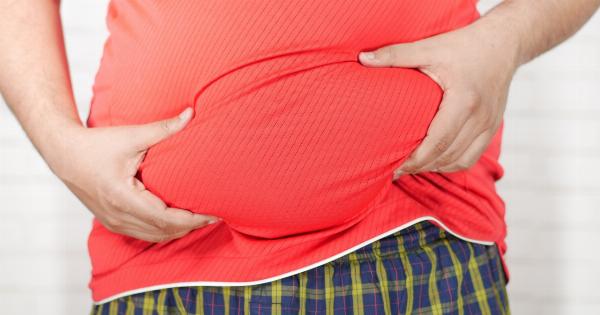Belly swelling is a common condition that affects many people. It can be caused by a variety of factors, including poor diet, lack of exercise, stress, and digestive disorders.
However, there are many quick and easy ways to reduce belly swelling and improve your overall health. Here are 10 effective ways to reduce belly swelling:.
1. Drink Plenty of Water
Drinking plenty of water is one of the most effective ways to reduce belly swelling. It can help to flush out excess water and toxins from your body, which can contribute to belly swelling.
Aim for at least 8-10 glasses of water per day, and try to drink water throughout the day to stay hydrated.
2. Eat a Healthy Diet
Eating a healthy, balanced diet is essential for reducing belly swelling. Avoid processed foods, fried foods, and sugary drinks, which can all contribute to belly swelling.
Instead, focus on eating plenty of fruits and vegetables, lean proteins, and whole grains. Also, make sure to eat regularly throughout the day to keep your metabolism and digestion functioning properly.
3. Reduce Sodium Intake
Excess sodium consumption can lead to water retention in the body, which can cause belly swelling. Try to reduce your intake of sodium by avoiding processed foods, using natural seasonings like herbs and spices, and avoiding adding salt to your food.
4. Consume Probiotics
Probiotics are beneficial bacteria that help to maintain a healthy gut and digestive system. Consuming probiotics can help to reduce belly swelling caused by digestive issues such as bloating and gas.
Probiotic-rich foods include yogurt, kefir, sauerkraut, and kimchi.
5. Exercise Regularly
Exercise is an excellent way to reduce belly swelling and improve overall health. Regular exercise can help to boost your metabolism and burn excess fat, including belly fat.
Try to incorporate at least 30 minutes of moderate-intensity exercise into your daily routine, such as jogging, cycling, or swimming.
6. Reduce Stress
Stress can contribute to belly swelling by promoting the release of cortisol, a stress hormone that can lead to the accumulation of abdominal fat.
Try to reduce your stress levels by practicing relaxation techniques such as meditation, deep breathing, or yoga.
7. Get Enough Sleep
Getting enough sleep is essential for reducing belly swelling and promoting overall health. Lack of sleep can disrupt your metabolism and cause hormonal imbalances, which can contribute to belly swelling.
Aim for at least 7-8 hours of sleep per night, and establish a regular sleep schedule to improve the quality of your sleep.
8. Add Fiber to Your Diet
Fiber is an essential nutrient that can help to reduce belly swelling and improve digestive health. Consuming fiber can help to regulate bowel movements and prevent constipation, which can contribute to belly swelling.
Good sources of fiber include fruits, vegetables, whole grains, and legumes.
9. Avoid Carbonated Drinks
Carbonated drinks, such as soda and sparkling water, can contribute to belly swelling by introducing gas into your digestive system. Try to avoid carbonated drinks and opt for water instead.
10. Limit Alcohol Consumption
Excessive alcohol consumption can lead to water retention in the body, which can cause belly swelling. Try to limit your alcohol consumption to no more than one drink per day for women and two drinks per day for men.




























